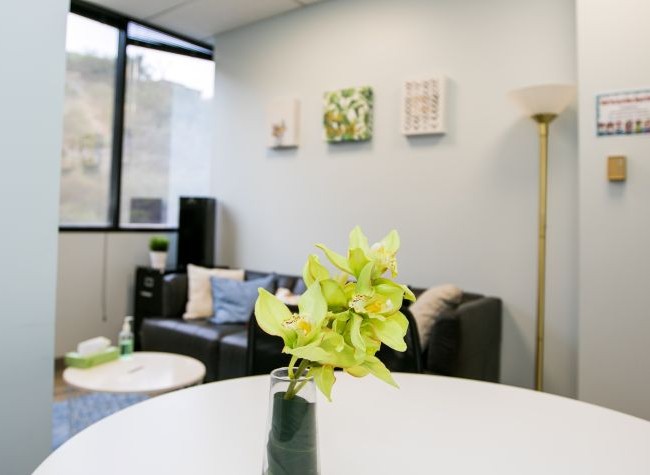By Sadie Coburn
Resilience is a word we use often, but Erika Granados sees what it looks like up close. As a therapist in our Foster Family Agency Stabilization and Treatment (FFAST) Program, she’s worked with youth who face unimaginable challenges and yet still find ways to show up, grow, and even lead. One teen in particular reminded her just how powerful that resilience can be when it’s met with consistent care.
“When I met her, she had just arrived in the U.S. from Central America,” Erika shares. “She didn’t speak English or Spanish. Her native dialect wasn’t recognized in most places, and she was completely alone.”
Despite language barriers, cultural isolation, and complex trauma, the teen began building connections with the team supporting her. Then, in the midst of an already difficult transition, she learned she was pregnant at just 15. Facing motherhood as a young teen in a new country, without peers or family nearby, added another layer of challenge, but it also deepened the care and commitment of those around her.
“She told me recently, ‘I wouldn’t be here if it wasn’t for the support from my entire team.’ It spoke volumes about the impact of showing up.”
The support went far beyond therapy sessions. Erika helped her access prenatal care, parenting resources, and education around health, sexuality, and cultural taboos, subjects rarely spoken about in her home community. “She was very parentified from a young age, so parenting came naturally,” Erika explains. “But no one had ever taught her how to care for herself.”
Together with her foster parent and youth partner, Erika helped coordinate baby essentials, school support, and even a baby shower, offering the teen her first real taste of celebration. The team also worked with the foster parent, who shared the youth’s language but not her cultural background, to bridge understanding and reduce judgment. “A lot of our work was explaining why certain things were ‘normal’ for her, even if they weren’t typical here. It was about helping her feel seen.”
As she adjusted to life as a young mother in a new country, the teen also committed to learning both Spanish and English, a remarkable effort, especially given her limited access to formal education before arriving in the U.S. “She’s been so open to services and support,” Erika says. “That changed everything. She learned to trust us.”
One year into parenting, she continues to work with Erika on her goals, and her growth has been extraordinary. “She’s not the same person she was when she arrived,” Erika says. “And that change didn’t happen because someone told her what to do; it happened because people cared enough to keep showing up.”
This story isn’t just about one youth’s transformation. It’s a reminder of what’s possible when foster youth have access to compassionate care, cultural understanding, and a team that believes in them.
“These children are incredibly resilient,” Erika says. “And when you surround them with people who care, they don’t just survive. They thrive.”
